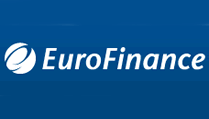 The NeuGroup’s Anne Friberg last week chaired a conference stream on making incremental improvements in treasury at the annual EuroFinance Strategic International Treasury conference in Miami. Seasoned corporate treasury practitioners from across several industry sectors debated the stream’s topics – FX hedging and bank relationships – in an “Open Spaces” panel format that allowed for plenty of lively dialogue with the audience.
The NeuGroup’s Anne Friberg last week chaired a conference stream on making incremental improvements in treasury at the annual EuroFinance Strategic International Treasury conference in Miami. Seasoned corporate treasury practitioners from across several industry sectors debated the stream’s topics – FX hedging and bank relationships – in an “Open Spaces” panel format that allowed for plenty of lively dialogue with the audience.
The session entitled “Hedging and foreign exchange: Making positive gains” validated conversations with members of the NeuGroup network that FX risk management remains at or near the top of their priorities as volatility and a strong USD continue to impact financial results. Market changes have had their effects, too: as NeuGroup members heard from Thomson Reuters at the recent NeuGroup 2016 FX Summit in New York, market makers are “making less market” and taking more of an agency role due to regulatory constraints, capital requirements and market ethics concerns caused by the “forex scandal” surrounding the fixing-rate manipulation.
Panelists Bruce Edlund, Director of Treasury, Citrix; Todd Yoder, Head of Derivatives & Hedging Strategy, Director Global Treasury, Fluor Corporation; Darrell Thomas, VP & Treasurer, Harley-Davidson; and Keith Jennings, VP & Treasurer of Cameron International, all agreed that their programs delivered on the objectives of reducing earnings volatility (Citrix),and protecting margins (Cameron, Fluor) and cash flows (Harley-Davidson), but they were less sure that they get the best deals on trade execution to deliver incremental gains. All the panelists bid out the majority of their trades and are generally satisfied with the spreads they receive, although Fluor’s Mr. Yoder noted that there are algos that take advantage of information in the markets that a large corporate trade has been bid out; he said it is better to employ a bit of stealth and limit the counterparties you ask for bids to avoid the markets turning against you. This is particularly true for emerging markets and illiquid currencies.
In the next panel, “Has the spark gone from your bank relationships? And does it matter?,” Royston DaCosta, Group Assistant Treasurer, Wolseley Group Services; Brenda Crowder, Treasurer of Ferguson, a Wolseley subsidiary; Scott Craig, Assistant Treasurer, Office Depot; John Byma, formerly of Procter & Gamble’s treasury; and Debbie Mendler, Manager of Treasury Services, KLX, debated the new state of affairs in bank relationships. Banks’ willingness and ability to do business with corporate clients has already changed and will continue to evolve with the ongoing implementation of Basel III requirements and other regulations, which significantly affect the returns on their relationship business. The panelists agreed that there is a need to look carefully at relationships to ensure they are mutually beneficial. They all felt that they were in good standing with their core banks, which they defined as those that open their balance sheets for them, understand their business, support their daily operational requirements globally and can be counted on in downturns. However, “loyalty” in relationships may be expecting too much. Favors from the past may well be repaid but business is business and you may find yourself having to look for a new partner if you’re not sustainably profitable for your bank.
Outlook
In the end, it may be tempting for corporates to second-guess their hedge counterparts with regards to transaction pricing, but perhaps time is better spent making positive gains in FX hedge performance through improved exposure identification and forecasting, for example. Meanwhile, nurture bank relations to ensure top-notch service, but also that you are a profitable customer so the relationship will last.
My thanks to all the panelists!